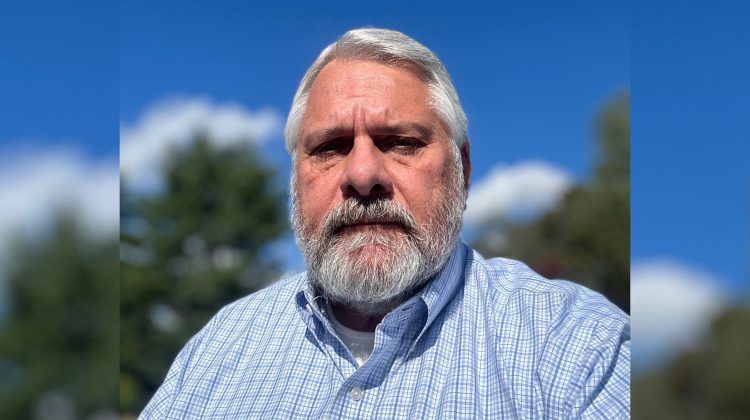SWAMPSCOTT — Housing Authority Chair Charlie Patsios, who is also on the Board of Assessors and is a member of the Solid Waste Advisory Committee, announced his campaign to run for a seat on the Select Board.
Town elections are slated to take place on April 28, 2026.
Patsios sat down to speak with The Item, where he explained that it was several key factors that led to his decision to run.
One area of concern for him regards the idea to use the Clarke School for housing for seniors, the same site that’s already in-talks to be used for potentially expanded programs by the Recreation Department.
“Let’s take care of our seniors. Let’s put senior housing there… They can take the Senior Center out of the High School and put it in the Clarke building. They can also take the administrative offices — which is inside the junior-high building — and put it back in the high school, where the Senior Center is,” Patios elaborated.
He also said one of his biggest concerns is the fact that the Town still does not have a full-time assessor.
Patsios continued, where he said another change that he’d like to see is the formation of a Water & Sewer Commission, which the Town does not currently have.
“We don’t have a Commission in Swampscott. It could be an independent agency if it were formed in town. It sets its own tax rates and could operate like Lynn Water & Sewer, like in Marblehead… Swampscott doesn’t have that,” he said.
If the Town were to create a Water & Sewer Commission, he said, “The Town would be able to bond separately in Swampscott, which, in essence, would not affect our bond rating by maxing out the Town’s single entity bond rating.
“Because, if we were to max out, it would affect our bond rating. If we were to create the Commission, its sole purpose is to maintain, improve, and safeguard our beaches, water, and sewers… It’s another reason why I’m a little jealous of Marblehead.”
He added that “the last thing I want to do is raise my hand to be on the Select Board because of pride or ego… I’m all out.”
He said, “If someone smarter than me wanted to run for any position that I held, I wouldn’t hesitate to vacate that position and appoint him or her immediately if they were up for the task… Because I want smarter people than myself.”
Patsios also touched upon the Quarry, which is currently owned by Aggregate Industries. He had the idea to try and remove the blast restrictions currently in place to help deplete the quarry faster, which could turn into future developments for the town.
He said if he were in a position to make a recommendation to the Town “that has its future at heart,” he’d work to remove the restrictions on blasting — which he noted currently can only be done on Fridays — to blast during the week as long as it meets state regulations.
“If they did that, it’s anticipated that the quarry would be depleted in 25 years… With our current restrictions, the estimation is 50 years,” he said. “When it’s depleted, the owner could sell it or rent it out as a landfill,” he said.
Another important element Patsios considered was working with other board members who may have different viewpoints.
“I’ve always looked at someone’s strengths on a board as their biggest asset. If I know what you do for a living, I’ll be able to understand your contribution, where I can lean on you more because of the expertise you bring to the table… In order for me to work with others, I need to say where I’m at, why I’m there, what the implications of doing something are, and what they might be if we don’t do something,” he said.
Patsios took a second to show gratitude for the Athanas family, which he noted has a tremendous legacy, expressing thanks for helping hold onto the General Glover Farmhouse all these years.
“If we didn’t have Anthony Athanas and we had another person who owned the farmhouse 20 years ago, it would have been torn down… We wouldn’t be talking about trying to save General Glover Farmhouse; we’d be talking about how we should have tried to save it,” he said.
For Patsios, another important component of a position on the Select Board is the input of communal feedback.
“We need to engage a community based on its ability to understand the task at hand, and I’d love to say, ‘How many architects, engineers, or developers are in the room?’ I want them to have their expertise and to be able to collectively determine reality,” he said.
He continued, “Don’t vote for me because you like me; it really doesn’t matter. But it matters what the conditions of the Town are when we implement our policies and procedures, and whether or not those policies make the Town stronger, neutral, or weaker.”





